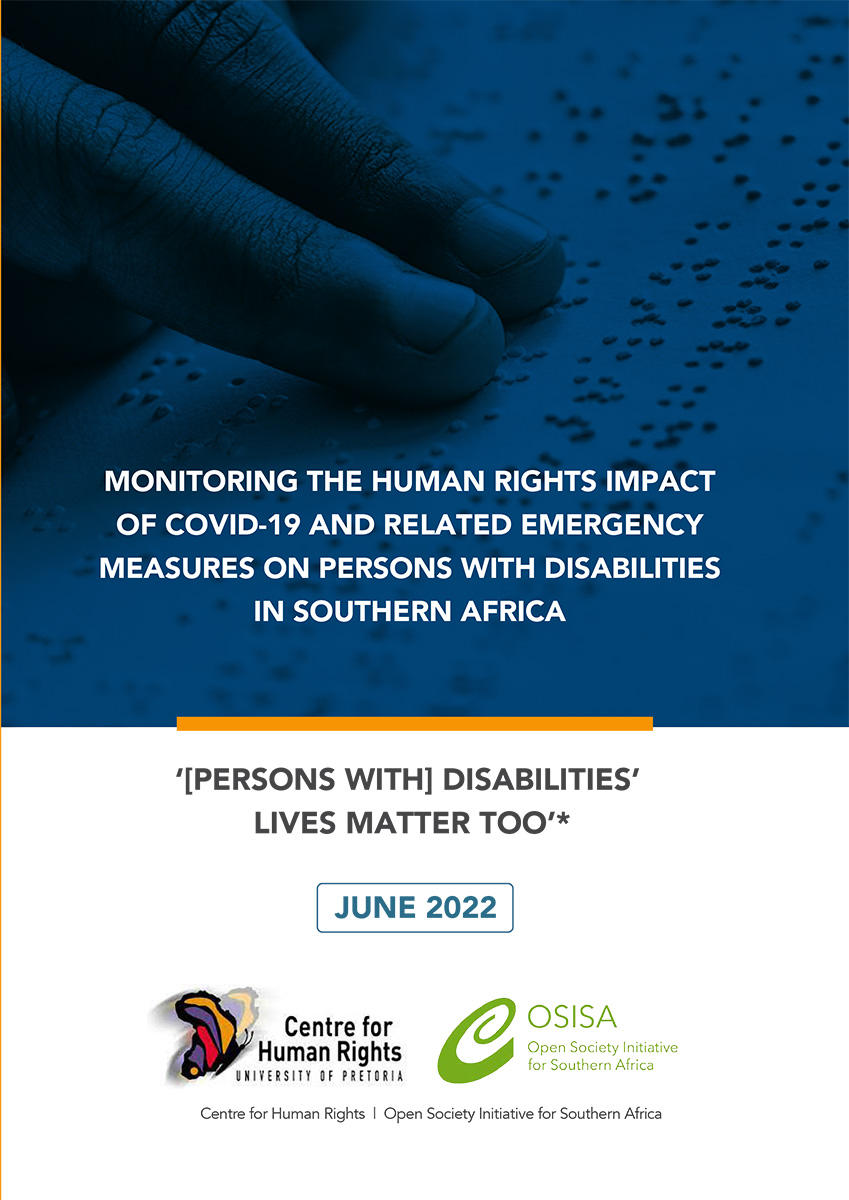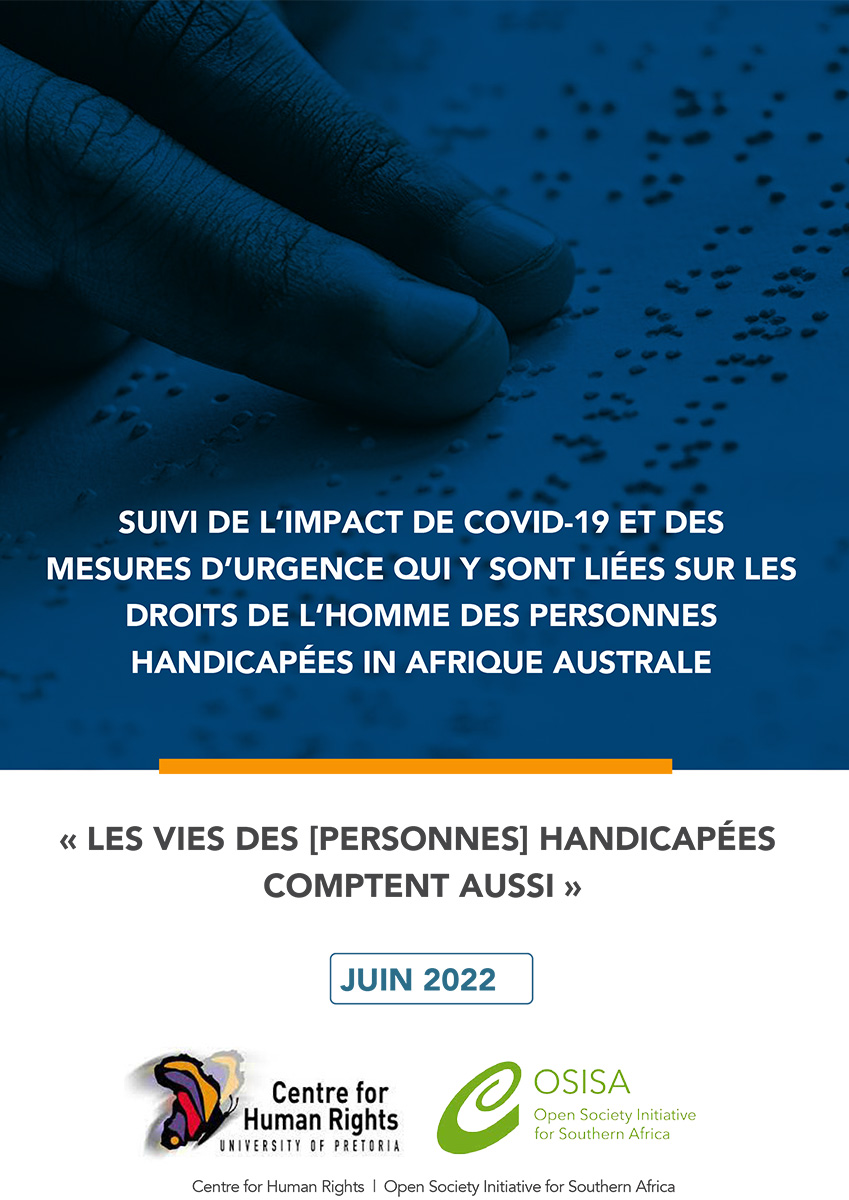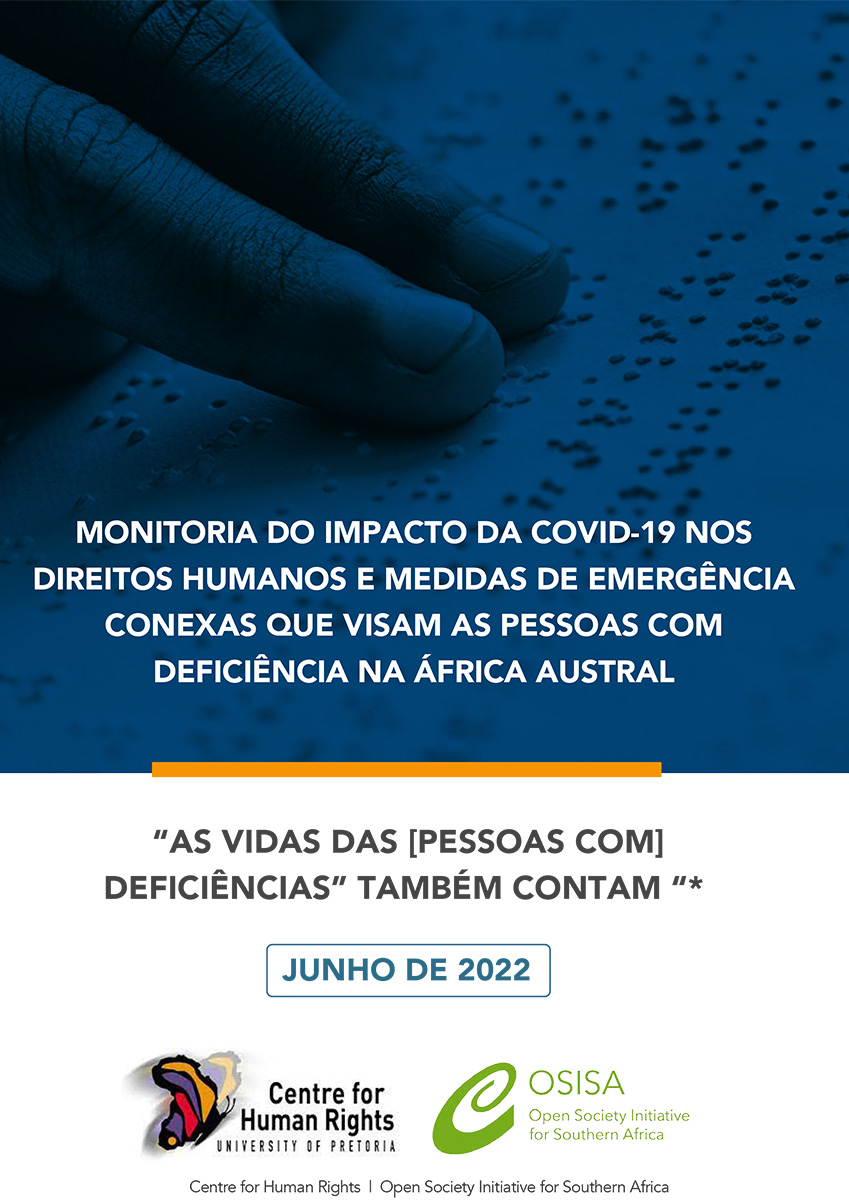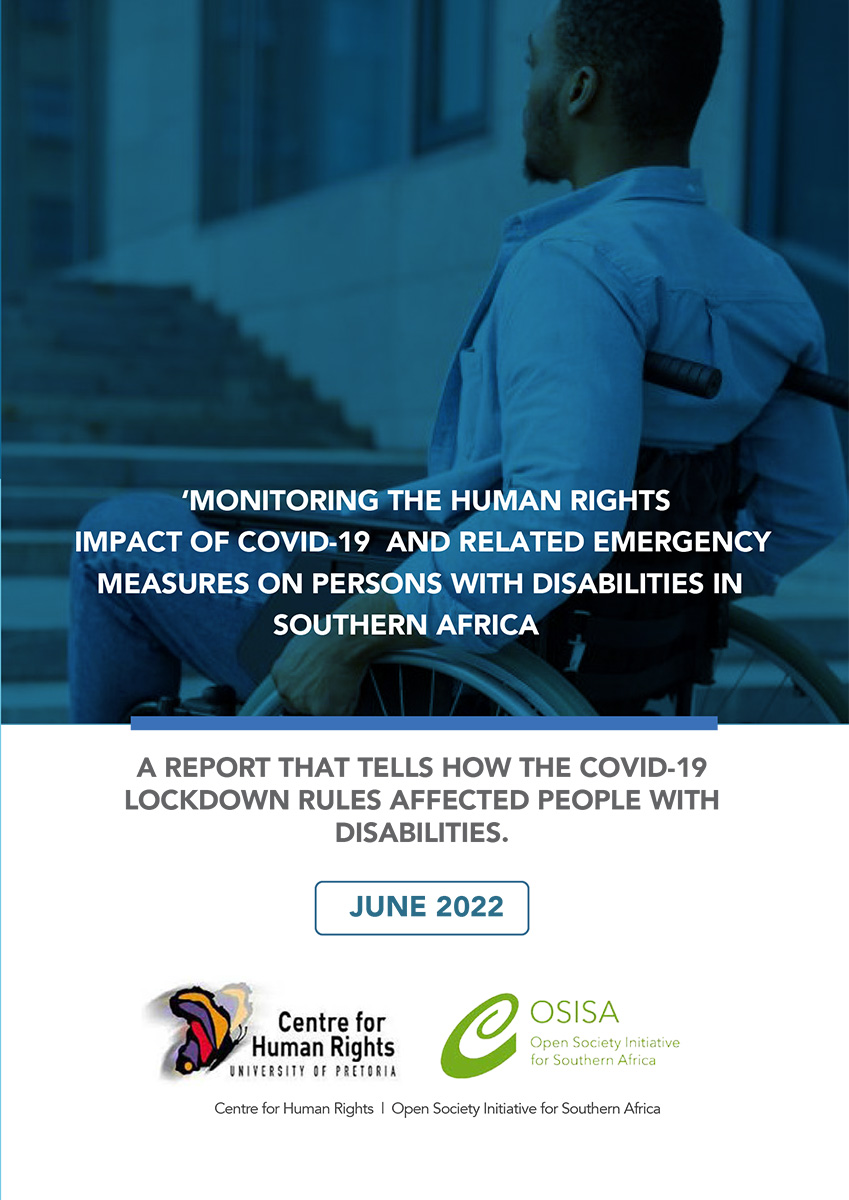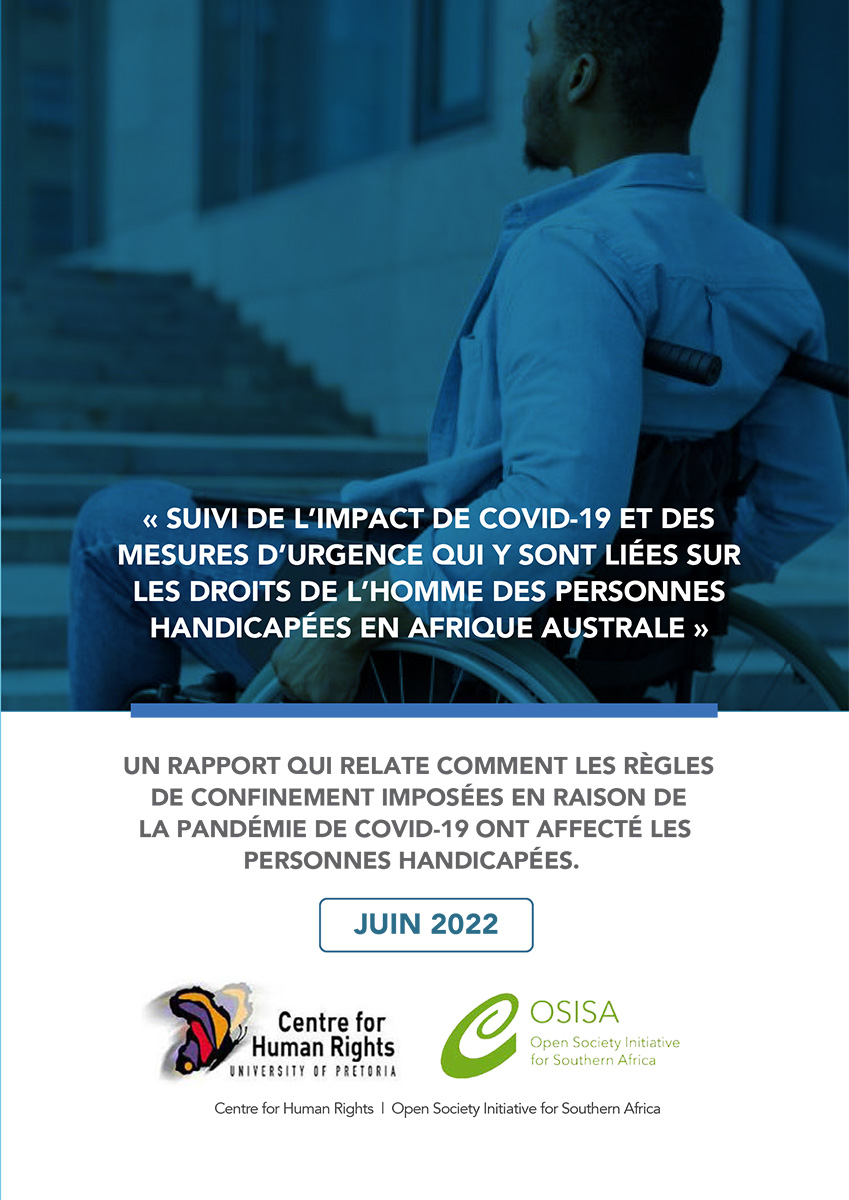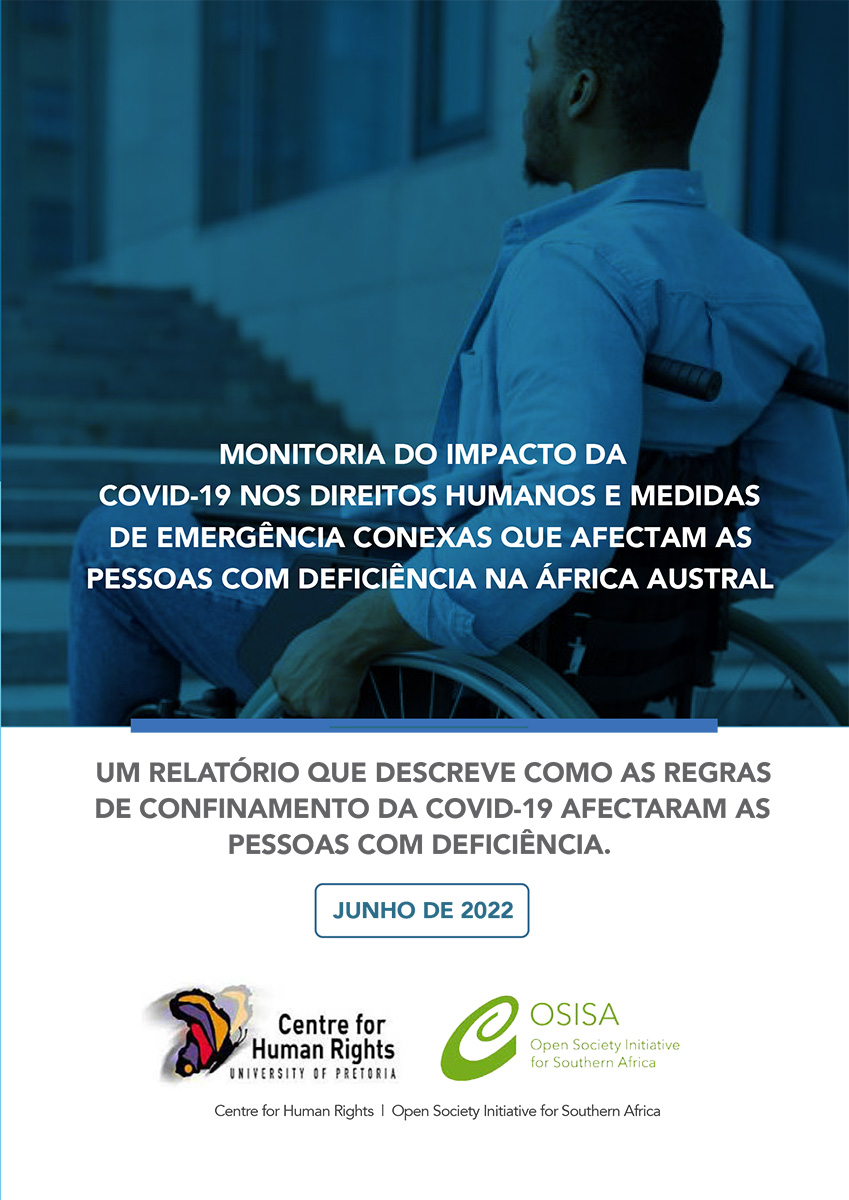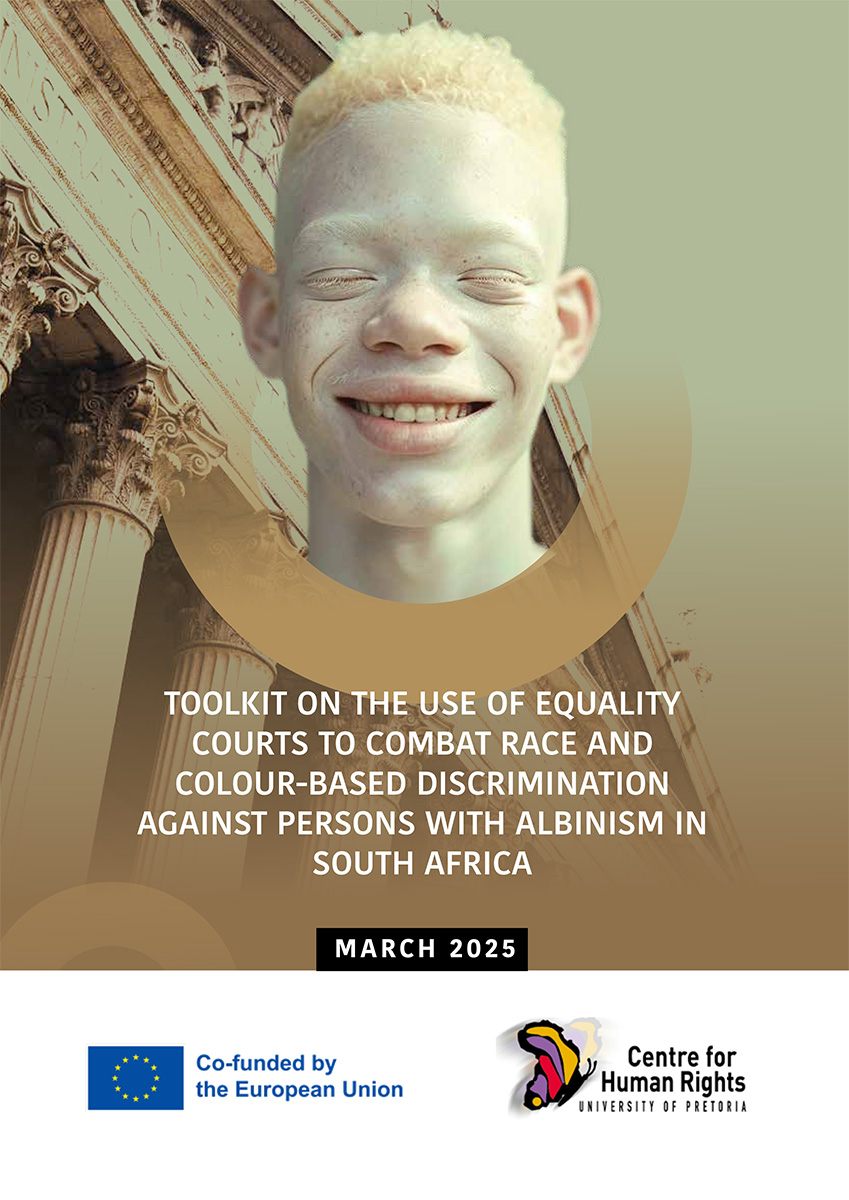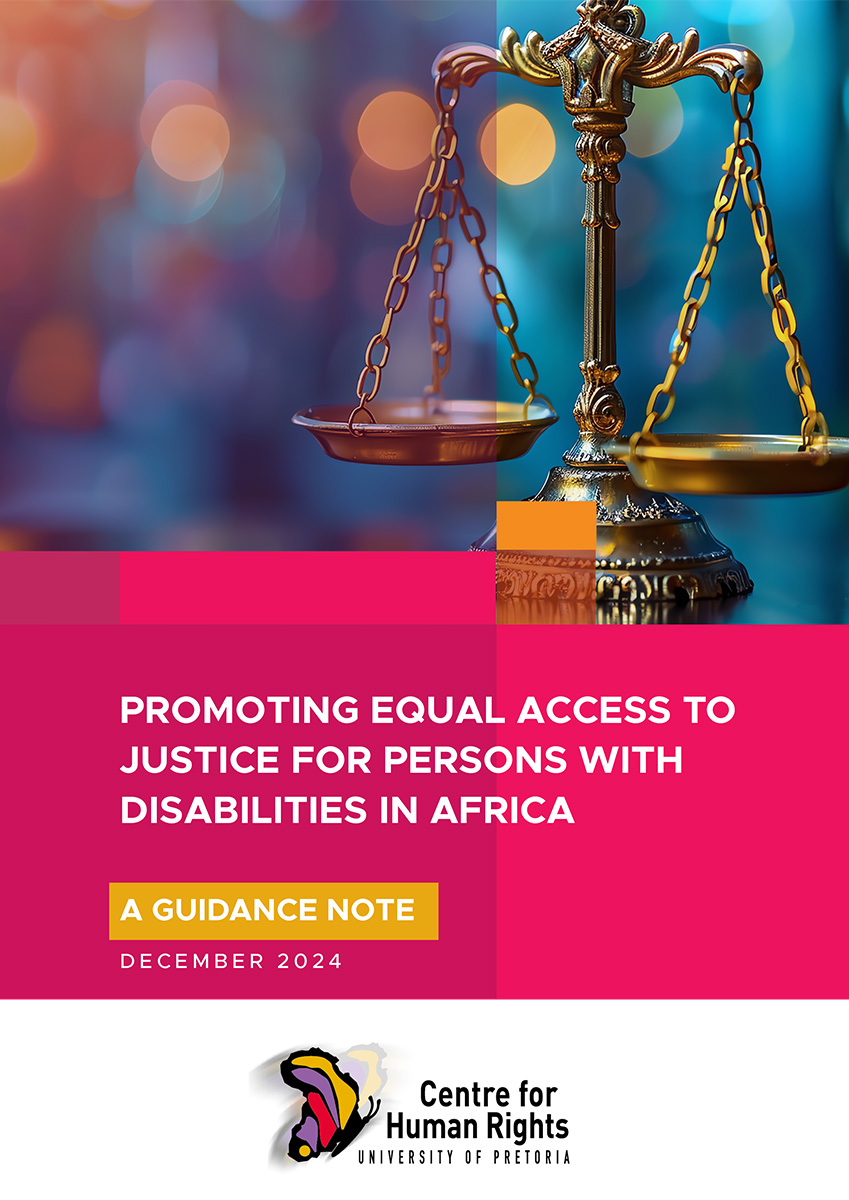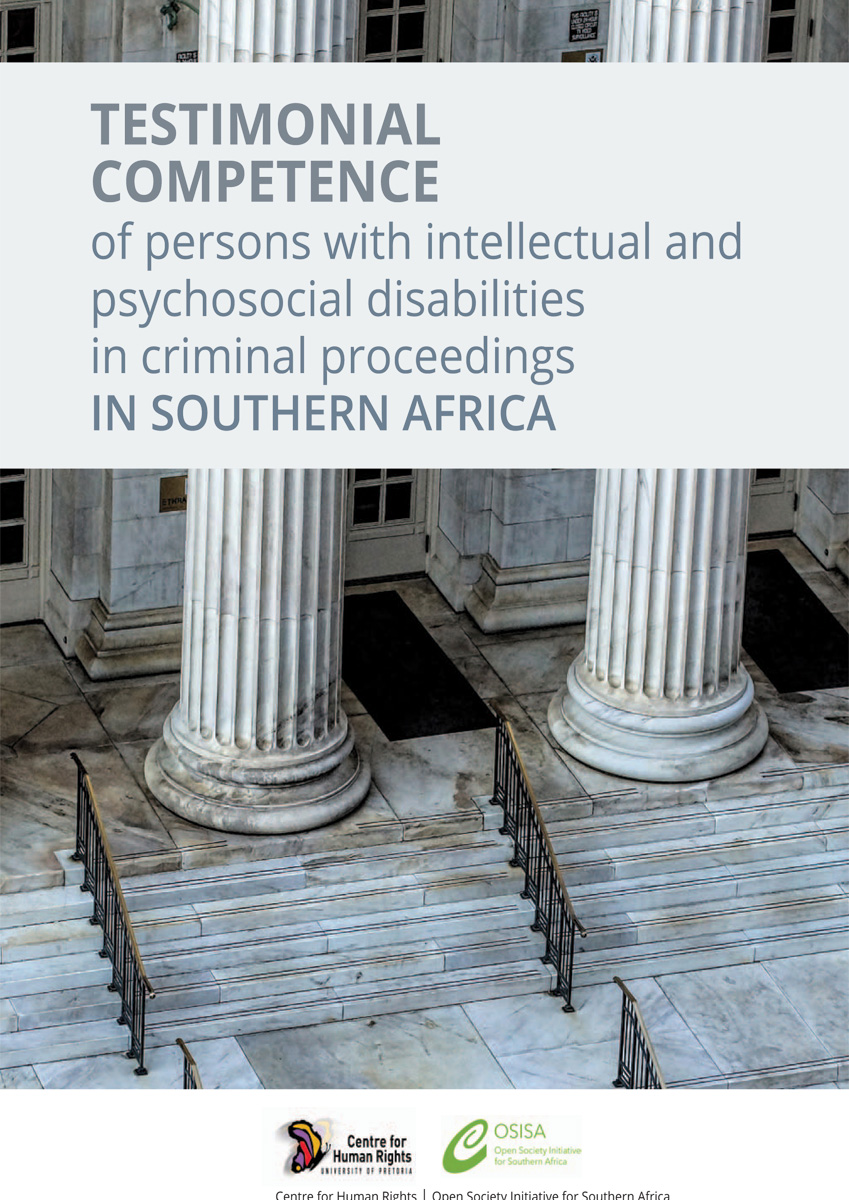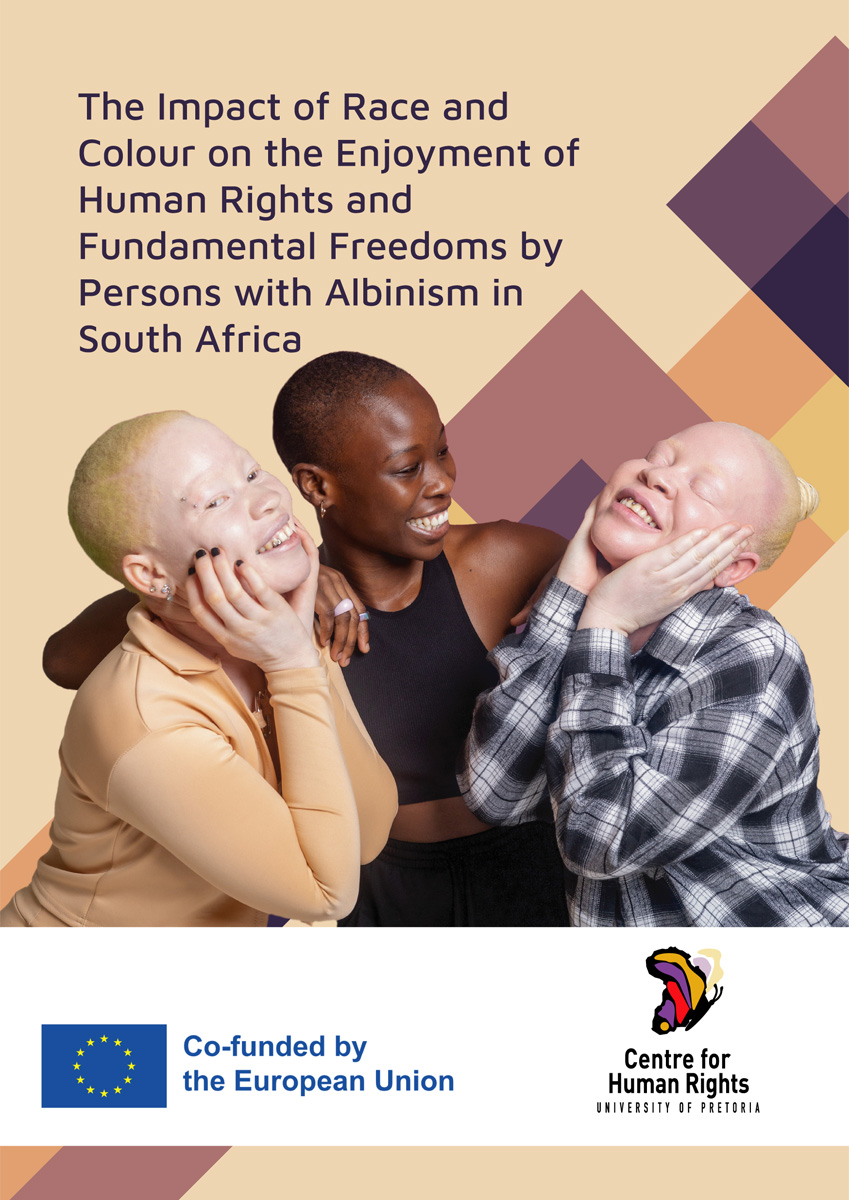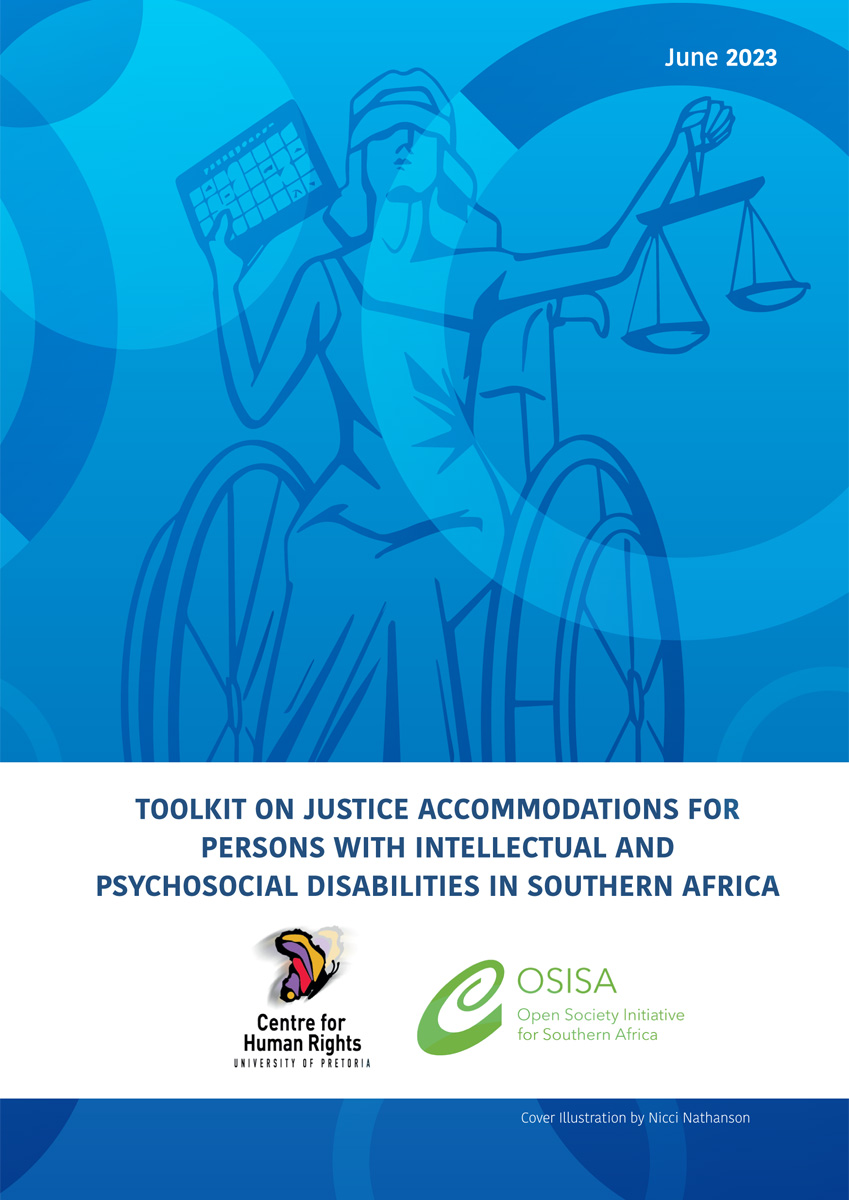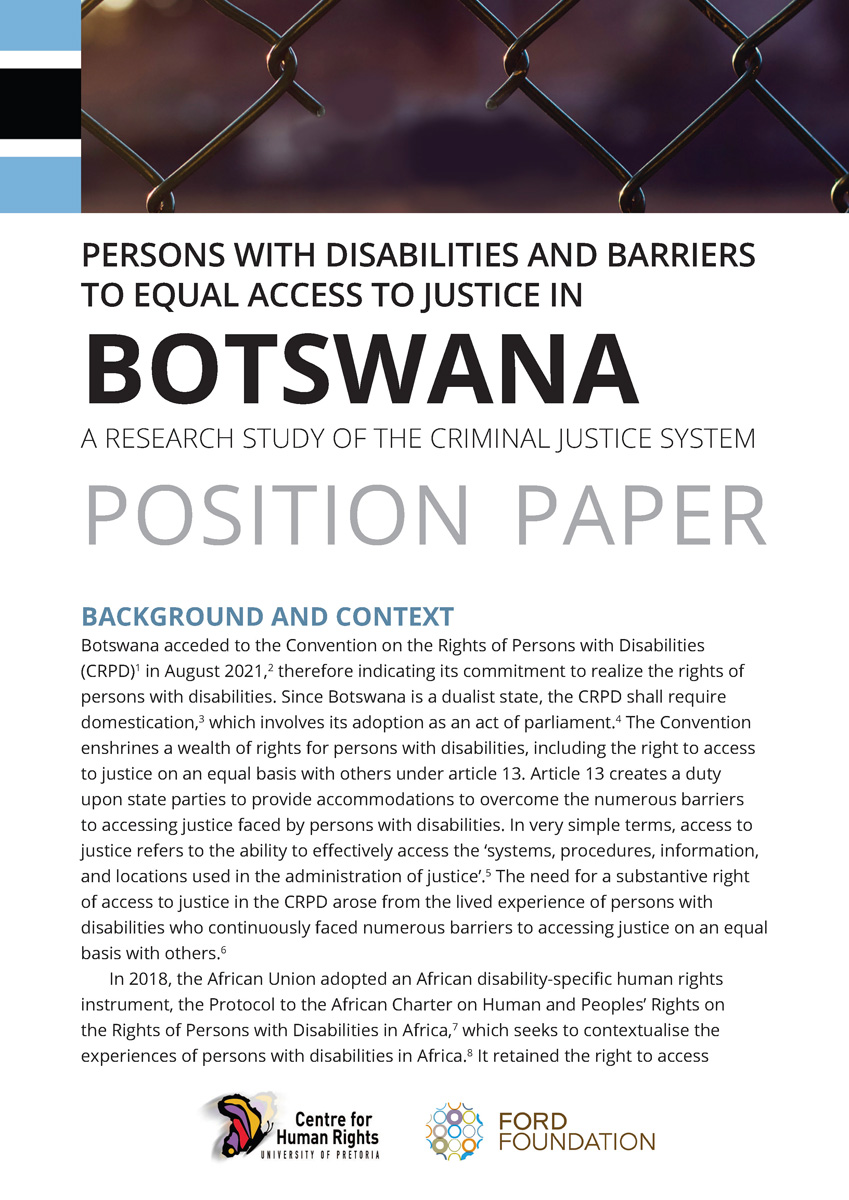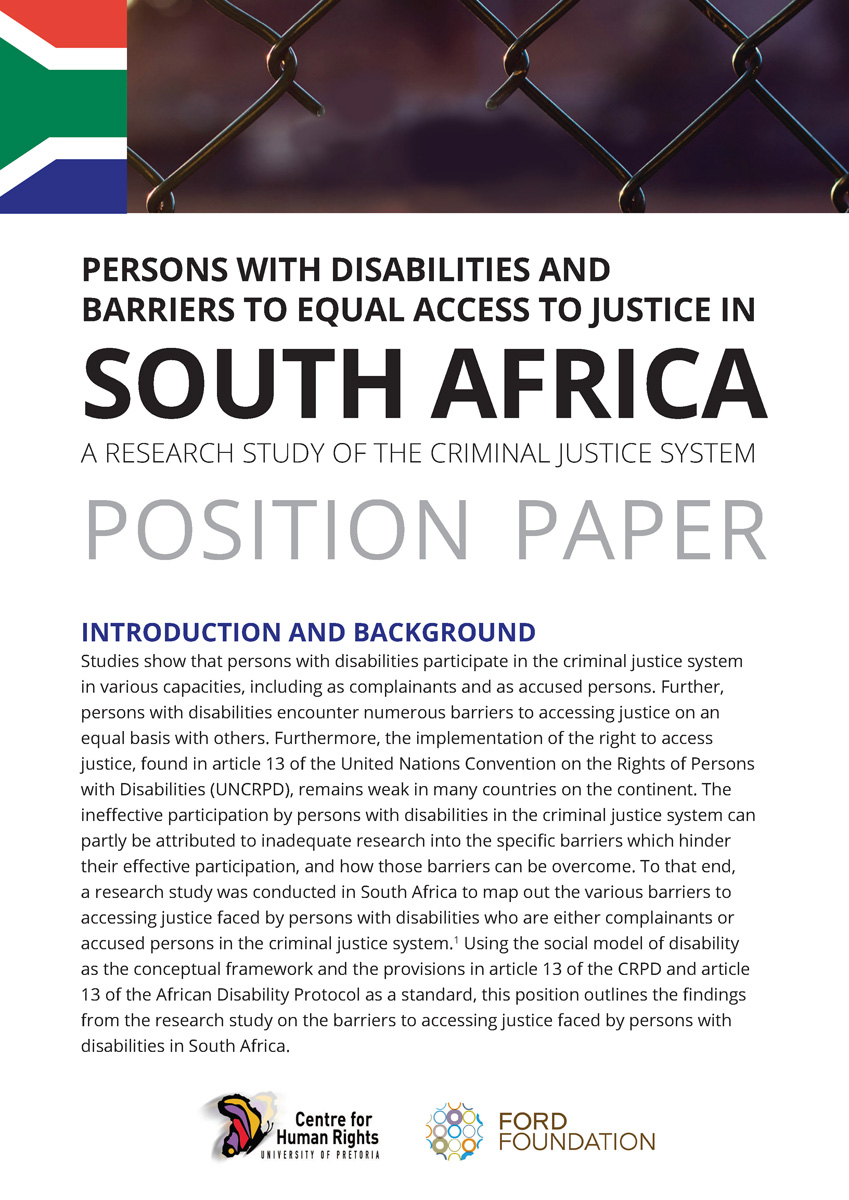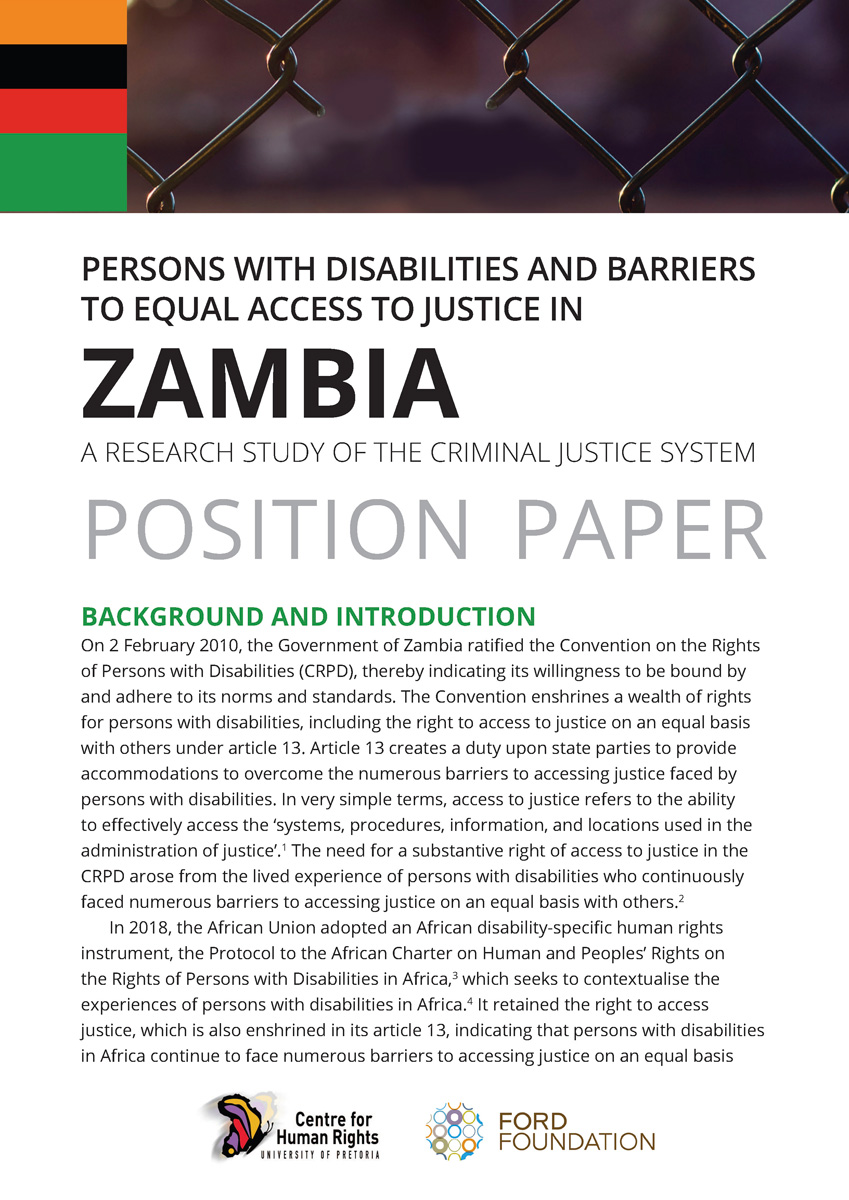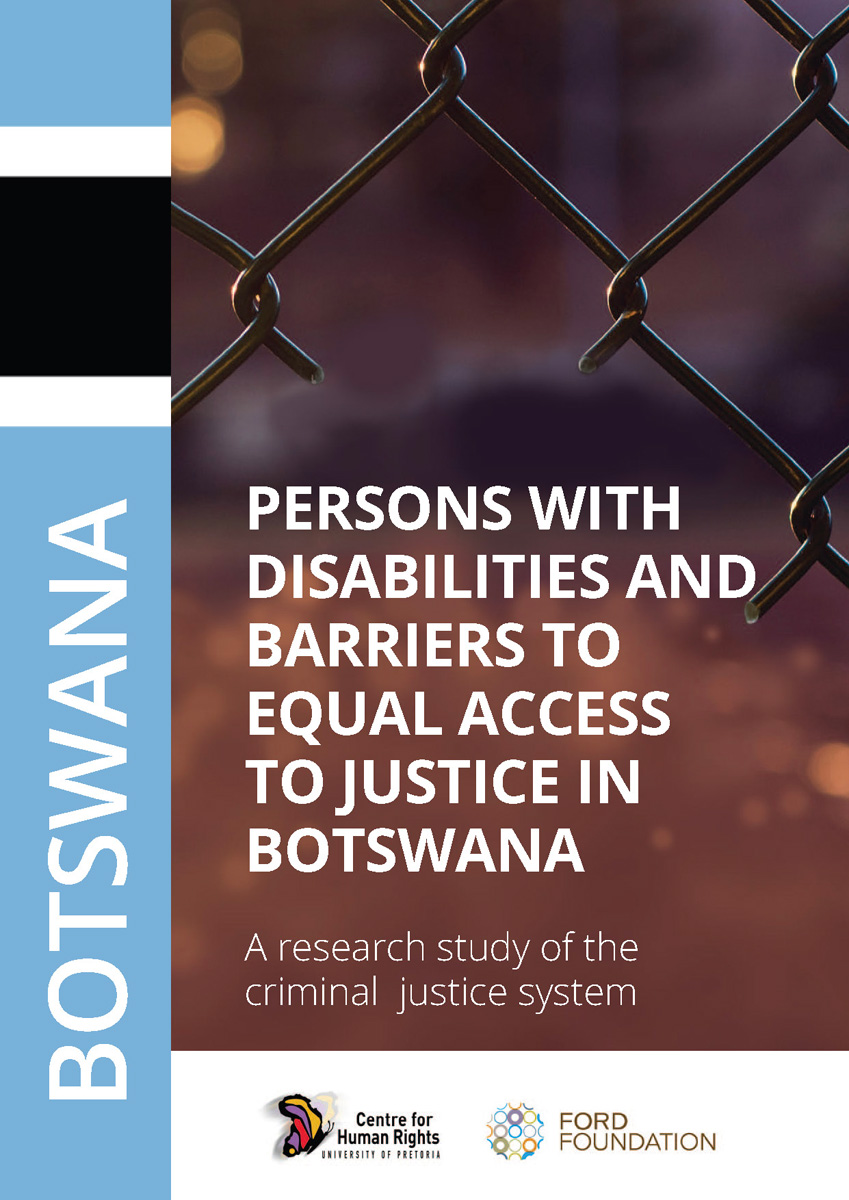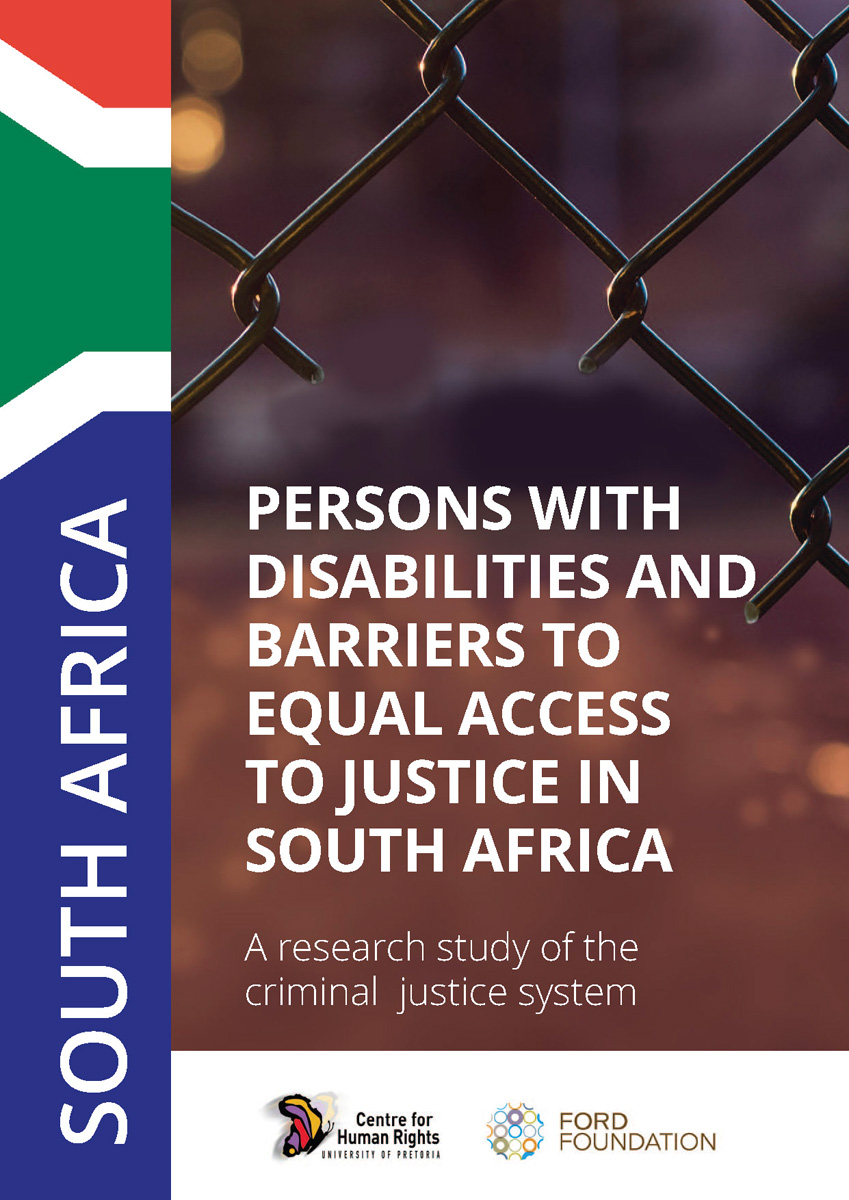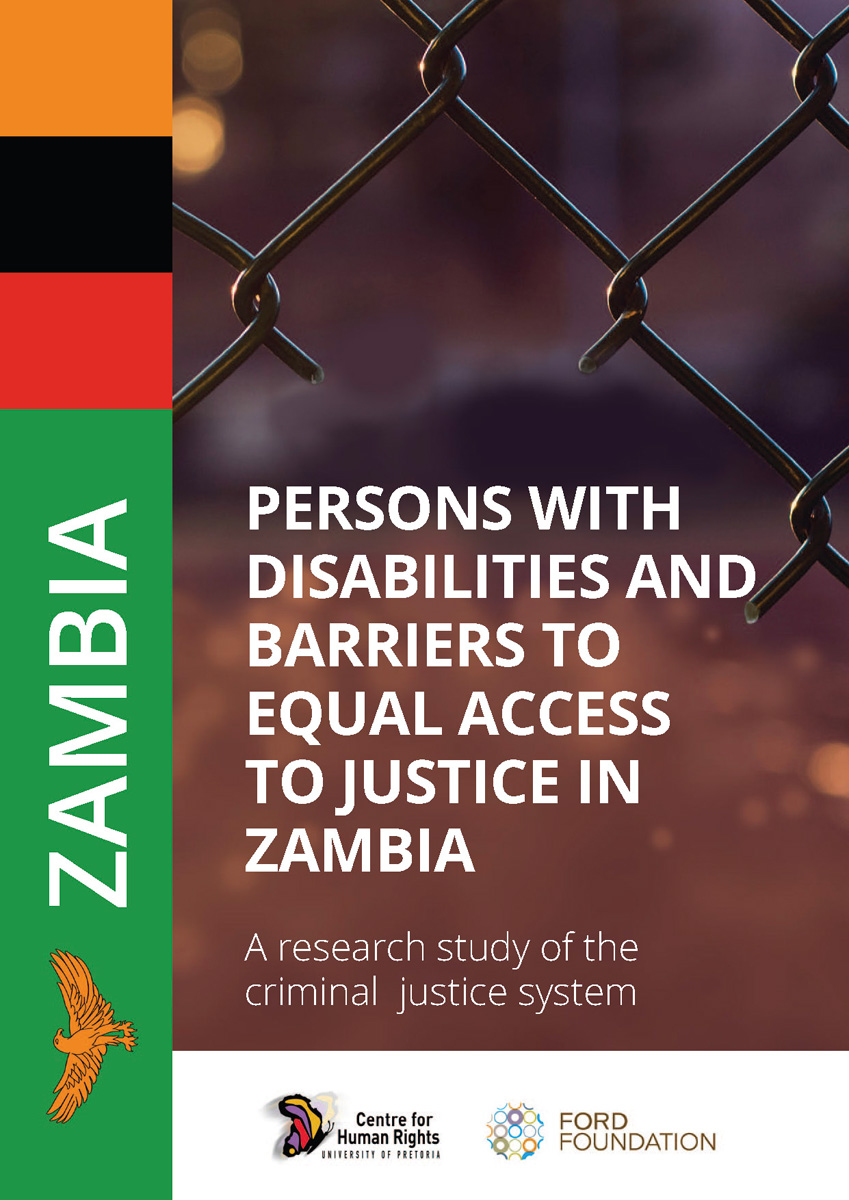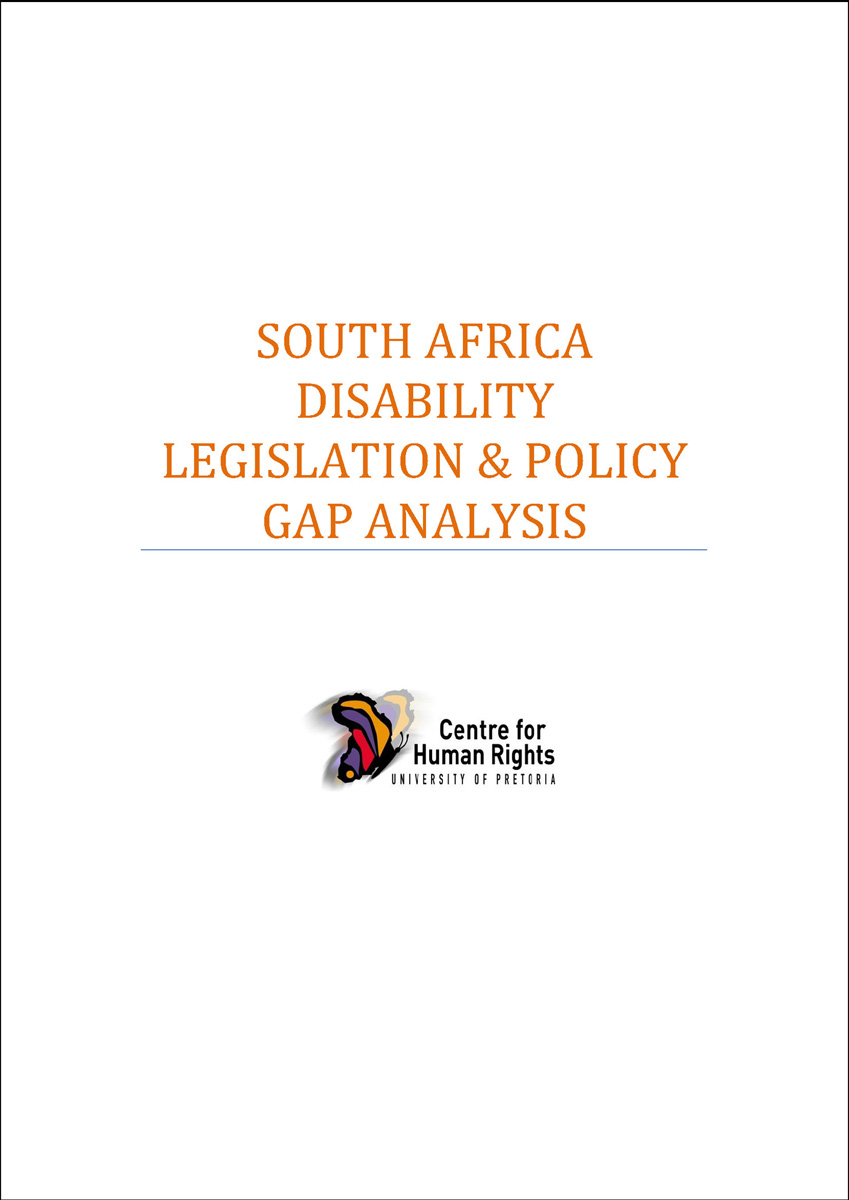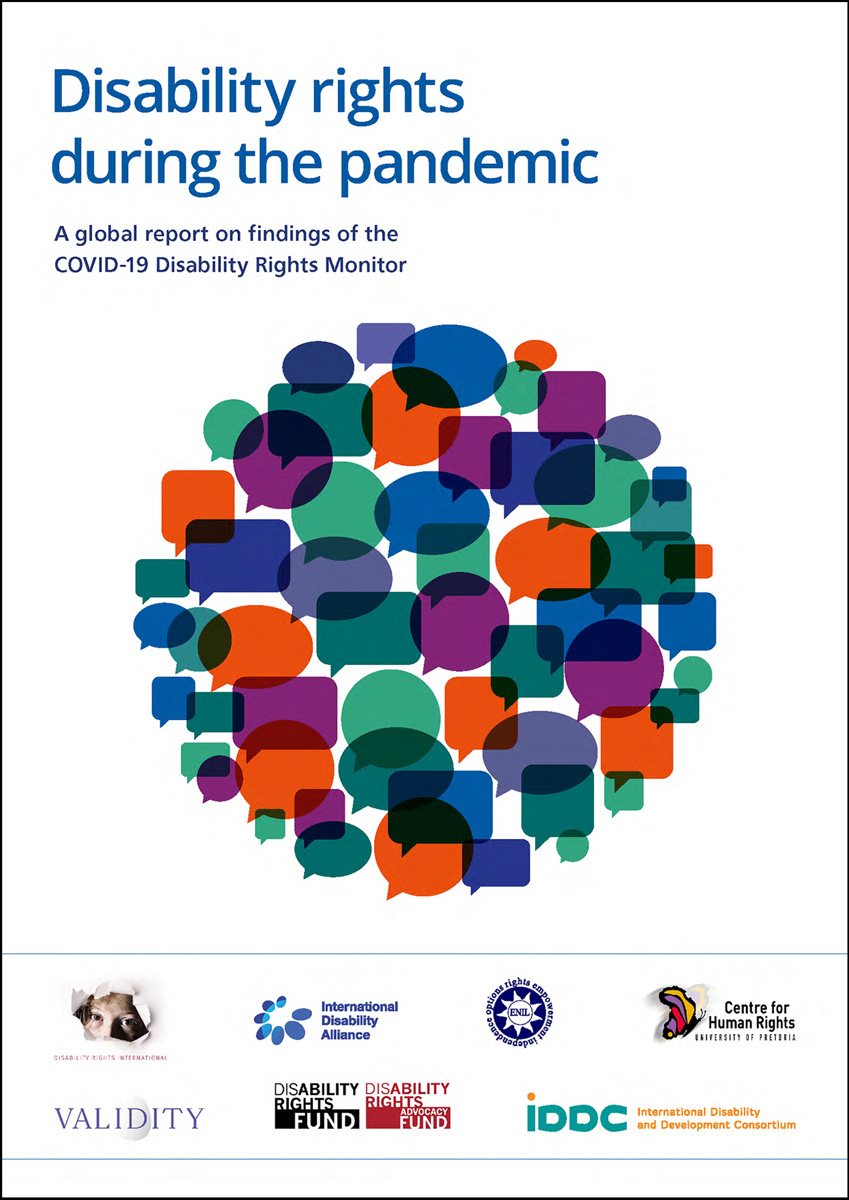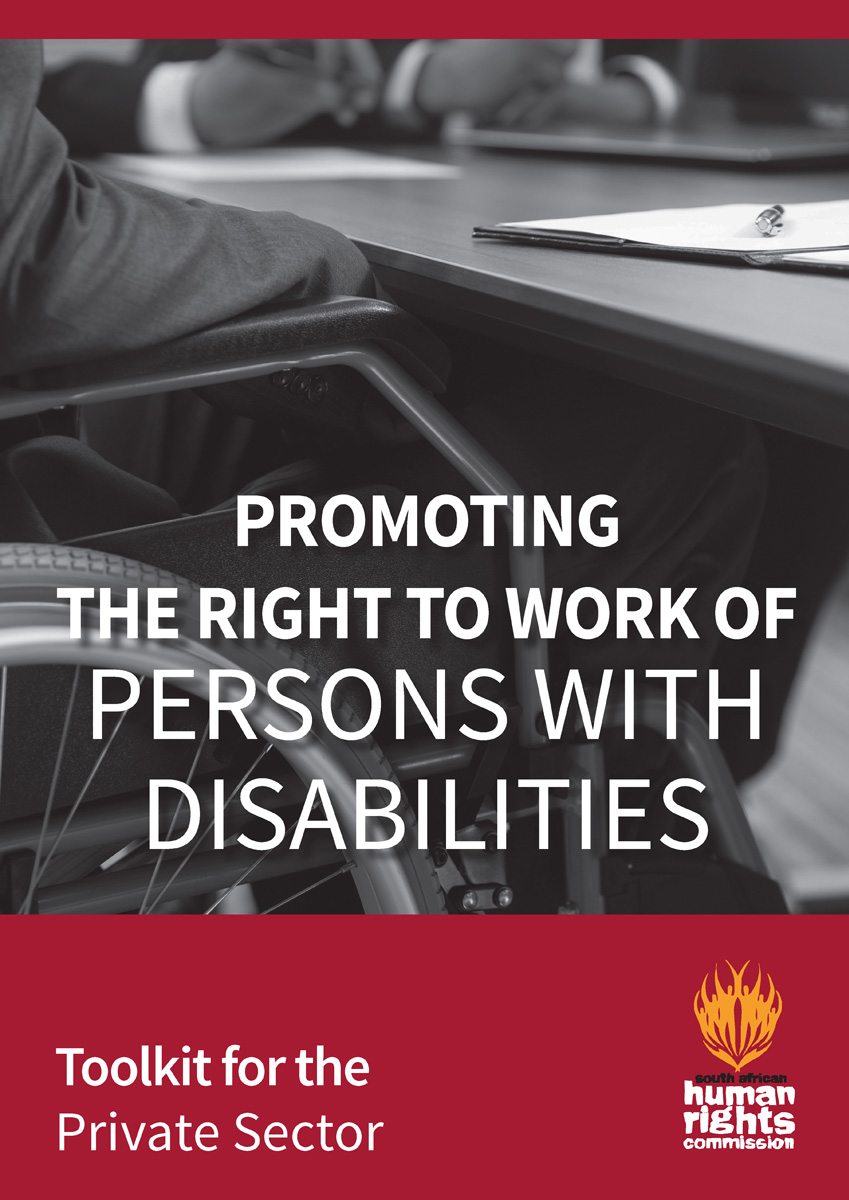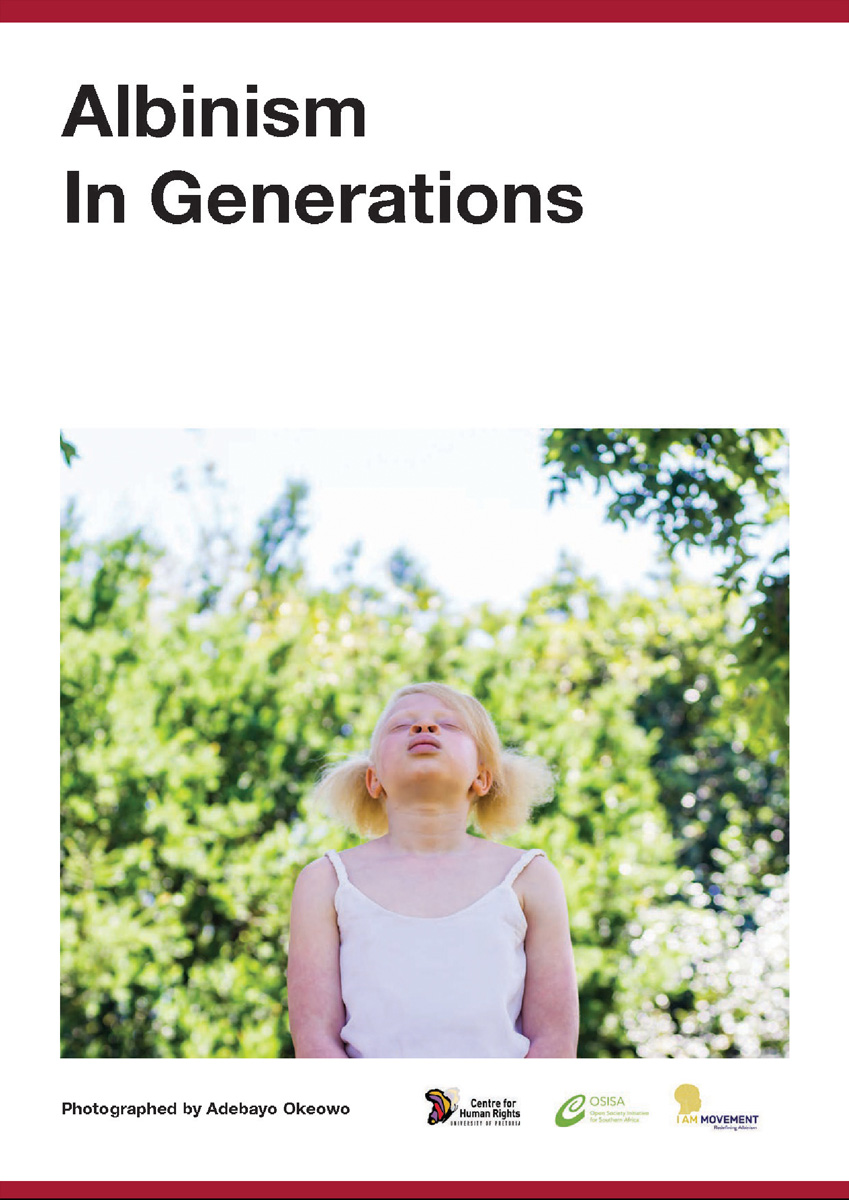The following publications are linked to the Disability Rights Unit at the Centre for Human Rights:
Monitoring The Human Rights Impact Of Covid-19 And Related Emergency Measures On Persons With Disabilities In Southern Africa
‘[Persons with] disabilities’ lives matter too’
Suivi de l’impact De Covid-19 et des mesures d’urgence qui y sont liées sur les droits de l’homme des personnes handicapées in Afrique Australe
« Les vies des [personnes] handicapées comptent aussi »
Monitoria do impacto da COVID-19 nos direitos humanos e medidas de emergência conexas que visam as pessoas com deficiência na África Austral
“As vidas das [pessoas com] deficiência também contam”
South Africa Disability Legislation & Policy Gap
The purpose of this report is to examine existing South African legislation, policies and programmes that have a an on the promotion, protection and fulfilment of the rights of persons with disabilities.
Disability Rights During the pandemic
This report raises the alarm globally as to the catastrophic impact of the COVID-19 pandemic on persons with disabilities worldwide and to catalyse urgent
Promoting the Right to work of Persons with Disabilities
The guidelines provided in the Toolkit are intentionally general so they can easily be adapted by employers to their specific business culture, working environment and human resource procedures.
Albinism In Generations
Addressing the misconceptions of people living with Albinisim inspired the Albinism in Generations campaign, which aims to visually tell the stories of persons with albinism in a bid to dispel the myths and foster inclusion in society.
African Disability Rights Yearbook
Drawing inspiration from the European Yearbook on Disability Law, it is the first publication of its kind that focuses on Africa. It aims to bring into prominence an area traditionally neglected by both African governments and academics.
Disability Rights Curriculum
Changing the landscape: Core Curriculum on Disability Rights for Undergraduate Law Students in Africa
Introduction to the curriculum
This ‘Core Curriculum on Disability Rights for Undergraduate Law Students in Africa’ has been developed as part of a broader initiative to foster and strengthen knowledge and awareness about and interest in the rights of persons with disabilities among lawyers in Africa. This initiative, the ‘Disability Rights and Law Schools in Africa Project’ was supported by the Open Society Foundations, initially the Open Society Initiative for Southern Africa (OSISA) and later complemented by the Higher Education Support Programme (HESP) and the Human Rights Initiative (HRI). For the avoidance of doubt, the curriculum is written with the aim of being delivered to learners undertaking legal studies.
The Law Schools Project comprises support to a network of selected universities, particularly in Africa, with the Centre for Human Rights, Faculty of Law, University of Pretoria, playing a coordinating role.
These faculties are:
- Chancellor College, University of Malawi
- Eduardo Mondlane University, Mozambique
- Makerere University, Uganda
- Midlands State University, Zimbabwe
- University of Botswana
- University of Dodoma, Tanzania
- University of Nairobi, Kenya
- University of Namibia
- University of Zambia
Collaborative process
Drafting a curriculum for a full undergraduate course is an ambitious undertaking. It's many iterations, reworking, and revisions span some four years and include numerous authors, commentators and other contributors. It is therefore impossible to definitively allocate authorship. The following persons all contributed in significant ways:
William Aseka; Natasha Banda; Luis Bitone; Enoch Chilemba; Helene Combrinck; Yvonne Dausab; Nadja Gomez; Ilze Grobbelaar-du Plessis; Hilda Kaluwa; Serges Kamga; Elizabeth Kamundia; Magnus Killander; Bernadette Malunga; Esau Mandipa; Lawrence Mashava; Orquidea Massarongo; Lungowe Matakala; Nkatha Murungi; Tshepiso Ndzinge Makhamisa; Charles Ngwena; Jehoshaphat Njau; Chipo Nkatha; Ruusa Ntinda; Ally Possi and Peter Shughuru.
While most modules are the outcome of contributions by numerous authors, the last three (modules 10 to 12) were added towards the final stages of the Project. Different to other modules, these three were developed almost exclusively by a single author, Elizabeth Kamundia, whose professionalism and devotion to the Project is specifically recognised and appreciated.
The Curriculum benefitted considerably from the inspiration, support and critical comments of various experts of the Open Society Foundations, in particular, Alison Hillman, Tirza Leibowitz, Patricia
Mwanyisa, Boaz Muhumuza, Elena Naumkina, and Louise Olivier.
The African Law Schools Project forms part of a broader global network of law schools in Europe and the Americas. Some of these global partners, in particular, the following persons have made significant contributions:
Prof Luke Clements, Cardiff University
Prof Arlene Kanter, Syracuse University
Shivaun Quinlivan, National University of Ireland, Galway
The Contribution of Prof Michael Stein, Harvard University, an extraordinary professor in the Centre for Human Rights, is also acknowledged with appreciation.
It appears from the process described above that the curriculum writing process has been the product of extensive collaboration. While we cannot name everyone who contributed to the curriculum by
name, we would like to express our appreciation to all who contributed in some way to this publication.
Overview
The curriculum comprises of the following modules:
Module 1: Introduction to disability rights
Module 2: Protection of the rights of persons with disabilities: Global framework
Module 3: Protection of disability rights under African regional and national law
Module 4: Non-discrimination against persons with disabilities
Module 5: Right to health
Module 6: Participation in political and public life
Module 7: Employment
Module 8: Education
Module 9: Vulnerabilities and inter-sectionalites
Module 10: Legal capacity law and policy
Module 11: Access to justice
Module 12: Strategies towards implementing disability rights
Toolkit on business and disability
The Disability Unit has designed a toolkit for the private sector geared towards promoting the right to employment of persons with disabilities on behalf of the South African Human Rights Commission. The Commission is in the process of publishing the toolkit.
The Toolkit is part of a broader equality agenda to have the rights of persons with disabilities recognised in the labour market. It is intended to:
- raise awareness of the right to work of persons with disabilities in the private sector.
- support and encourage employers in the private sector to recruit, retain, and upskill persons with disabilities by presenting a strong business case for hiring and retaining employees with disabilities and demonstrating that employing persons with disabilities is good business.
- help employers in the private sector understand their obligations by outlining the employer’s legal responsibilities under national and international law, along with national development in policy-relevant to advancing the right to employment of persons with disabilities
Disability law, policy and programmes in South Africa research project
The Disability Unit together with professors from different departments within the University of Pretoria is working on a brief from Foundation for Human Rights. Under this Brief, the Unit is undertaking a comprehensive examination of existing South African legislation, policies and programmes that have a direct or indirect impact on the promotion, protection and fulfilment of the rights of persons with disabilities, as provided for in the Convention on the Rights of People with Disabilities (CRPD). The purpose of the review is to identify current gaps (and/or inconsistencies) between the existing legislative framework and the CRPD. In the second phase of the brief, the Disability Unit will be designing a national mainstreaming strategy. To upload when completed.
African Charter on the Rights and Welfare of the Child

